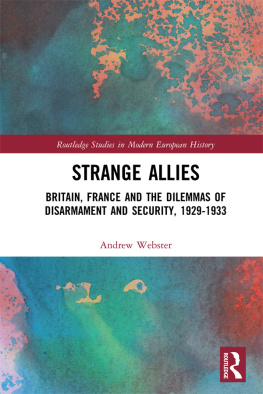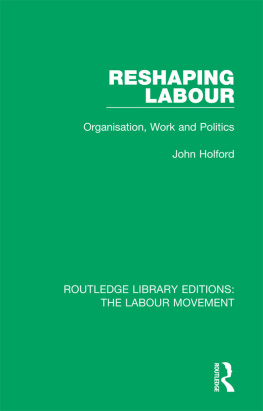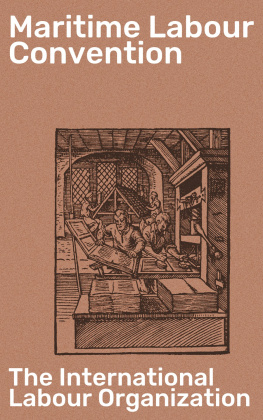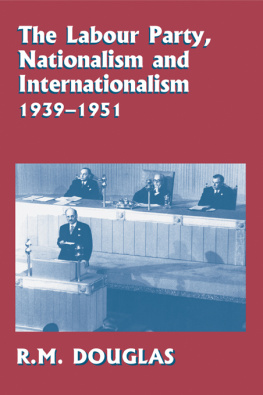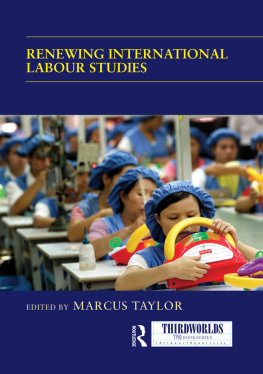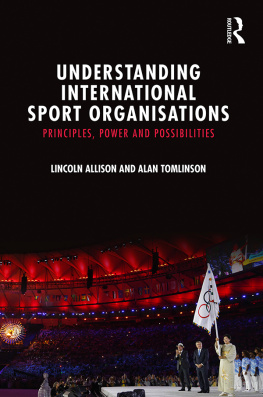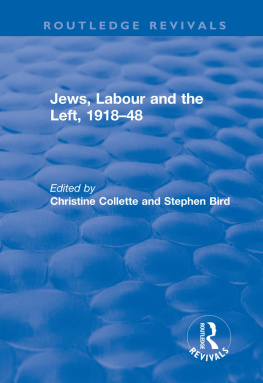The International Faith
For
Stephen Bird
First published 1998 by Ashgate Publishing
Reissued 2018 by Routledge
2 Park Square, Milton Park, Abingdon, Oxon, 0X14 4RN
711 Third Avenue, New York, NY 10017, USA
Routledge is an imprint of the Taylor & Francis Group, an informa business
Copyright Christine Collette, 1998
The author has asserted her moral right under the Copyright, Designs and Patents Act, 1998, to be identified as the author of this work.
All rights reserved. No part of this book may be reprinted or reproduced or utilised in any form or by any electronic, mechanical, or other means, now known or hereafter invented, including photocopying and recording, or in any information storage or retrieval system, without permission in writing from the publishers.
Notice:
Product or corporate names may be trademarks or registered trademarks, and are used only for identification and explanation without intent to infringe.
Publisher's
Note The publisher has gone to great lengths to ensure the quality of this reprint but points out that some imperfections in the original copies may be apparent.
Disclaimer
The publisher has made every effort to trace copyright holders and welcomes correspondence from those they have been unable to contact.
A Library of Congress record exists under LC control number: 97042174
ISBN 13: 978-1-138-34510-2 (hbk)
ISBN 13: 978-1-138-34513-3 (pbk)
ISBN 13: 978-0-429-43808-0 (ebk)
Studies in Labour History General Editors Preface
Labour history has often been a fertile area of history. Since the Second World War its best practitioners - such as E.P. Thompson and EJ. Hobsbawm, both Presidents of the British Society for the Study of Labour History - have written works which have provoked fruitful and wide-ranging debates and further research, and which have influenced not only social history but history generally. These historians, and many others, have helped to widen labour history beyond the study of organised labour to labour generally, sometimes to industrial relations in particular, and most frequently to society and culture in national and comparative dimensions.
The assumptions and ideologies underpinning much of the older labour history have been challenged by feminist and later by post-modernist and anti-Marxist thinking. These challenges have often led to thoughtful reappraisals, perhaps intellectual equivalents of coming to terms with a new post-Cold War political landscape.
By the end of the twentieth century, labour history had emerged reinvigorated and positive from much introspection and external criticism. Very few would wish to confine its scope to the study of organised labour. Yet, equally, few would wish now to write the existence and influence of organised labour out of nations histories, any more than they would wish to ignore working-class lives and focus only on the upper echelons.
This series of books provides reassessments of broad themes of labour history as well as some more detailed studies arising from recent research. Most books are single-authored but there are also volumes of essays centred on important themes or periods, arising from major conferences organised by the Society for the Study of Labour History. The series also includes studies of labour organisations, including international ones, as many of these are much in need of a modern reassessment.
Chris Wrigley
British Society for the Study of Labour History
University of Nottingham
Figures
Plates and music examples
Between pages 98 and 99
Thanks are due to Chris Wrigley, for editing; Nicky Rippon, for preparing camera-ready copy; Caroline Cornish, desk editor at Ashgate; Peter Manasse, Sound and Vision Department, International Institute of Social History, Amsterdam, for photographs; Ms Ishbel Lochhead for permission to quote from Ramsay MacDonalds diaries; Nicky Rippon and Nicole Fraser for French translation. Edge Hill University College and the Dee Foundation supplied research and scholarship grants. Archivists at the National Museum of Labour History, Manchester, International Institute of Social History, Amsterdam, Esperanto Centre, London, Tate Gallery, London, Womens Art Library London, the Ruth and Eddie Frow Centre, Manchester, Public Records Office, Kew, Churchill College, Cambridge, British Library of Political and Economic Science, London, Ruskin College, Oxford, Modern Records Centre, Warwick, Trades Union Congress, London, and the Bodleian Library staff should also be thanked for their patience and assistance.
AFofL American Federation of Labour
AIA Artists International Association
ASLEF Associated Society of Locomotive Engineers and Firemen
BLES British League of Esperantist Socialists
BWSF British Workers Sports International
CPGB Communist Party of Great Britain
EWI Education Workers International
ICA International Cooperative Alliance
IFTU International Federation of Trades Unions
IFWW International Federation of Working Women
IISH International Institute of Social History
ILO International Labour Office
ILP Independent Labour Party
ISS International Socialist Students
ITT International Tramping Tours
ITWF International Transport Workers Federation
IWW International Workers of the World
LRD Labour Research Department
LSI Labour and Socialist International
NCL National Council of Labour
NMM National Minority Movement
RILU Red International of Labour Unions
SATSennacieca Asocia Tutmonda
SDP Social Democratic Party
SEI Socialist Education International
SI Sports International
SJC Standing Joint Committee of Industrial Womens Organisations
SYI Socialist Youth International
TUC Trades Union Congress
WEA Workers Educational Association
WIPLF Womens International League for Peace and Freedom
WIR Workers International Relief
WTA Workers Travel Association
As major components of this title: internationalism; the Labour Movement are ideological constructs, it seems to me more than ordinarily important to explain my own position before defining terms and outlining the philosophical background and structure of the book. This study has been evolving for many years, stage posts including Ruskin College work on appeasement written for Victor Treadwell, who has nurtured many Labour Movement historians; my M.Litt. thesis under the supervision, at various times, of Victor, John Rowett and Raphael Samuel; the conference on the Second International organised by Chris Wrigley at Birkbeck College (1993), the North American Labor Conference, Wayne State University (1994) and that on Alternative Futures at Manchester Metropolitan University (1995). These people and events are among the many who have contributed inspiration but all involved are absolved from responsibility for the final outcome. My feminist approach, the need to address issues of gender and ethnicity stem from twenty years involvement in the Womens Movement; meetings of the Oxford Womens Studies group in the 1980s; my friendship with African historian Lindi Mhdluli, which makes me define myself as a white, Western woman; and teaching Womens Studies, with the rigorous questioning of gender, class and ethnic stereotypes which this discipline necessarily entails.


